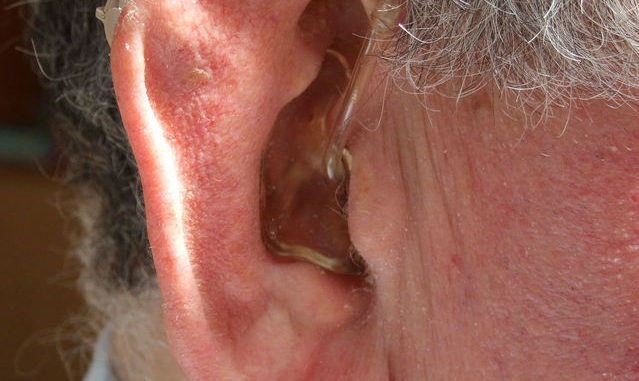
Tips to keep your hearing aids in good condition.
By Elizabeth Brassine, Au.D.
Hearing aids are pretty sturdy devices in spite of their complex electronic components. They’re shock resistant and well-protected against moisture and humidity. But unlike mobile phones and computer tablets such as an iPad, many hearing instruments don’t come with built in GPS locating devices (although some of the newer models made for iPhone hearing aids can make use of the Find my Hearing Aid app through the phone, assuming the hearing aid is still turned on and the battery is good). So, they can get lost!
We recommend that you never wrap your hearing aids in tissue paper. Hearing aid users have thrown the tissue paper away and even flushed it down the toilet and there go the hearing aids. Also, if you’re on an airplane, don’t wrap your hearing aids in an airline napkin—people have inadvertently had their hearing aids thrown away when the tray table was being cleaned (i.e. a passenger sleeping and the flight attendant clears the tray).
Hearing aids sometimes get lost within the wearer’s home. One woman replaced her lost hearing aids, only to find the originals behind the couch two years later. When we have a patient call us to inform us that they’ve lost their hearing aids, we usually encourage them to look for several days or a week before filing a claim or purchasing new. Most hearing aids come with an initial loss/damage policy included in their warranty (typically a one-time loss and will have a deductible apply).
Hearing aids have been left in pockets and then put through the washing machine. We don’t recommend it, but it’s not unusual for hearing aids to survive the wash and spin cycle.
And beware of small animals. Some dogs like the smell of the acrylic casing (and many can often smell their “human” on the hearing aids) and will chew up hearing aids if within reach. Also, if a hearing aid is left on, the exceptional hearing of a dog can hear it feeding back and then find it and react to it––as in chew it!
So, take good care of your hearing aids. And, remember, the safest place for them is in your ears (or case or dehumidifier jar at night)!
Elizabeth Brassine is a Doctor of Audiology and the owner of Hearing Services of McKinney.


